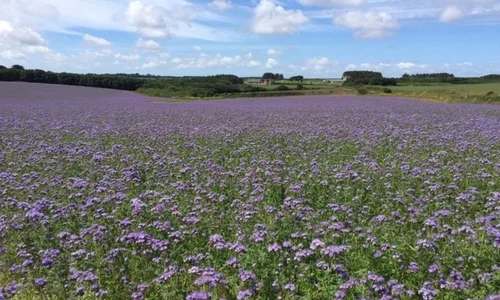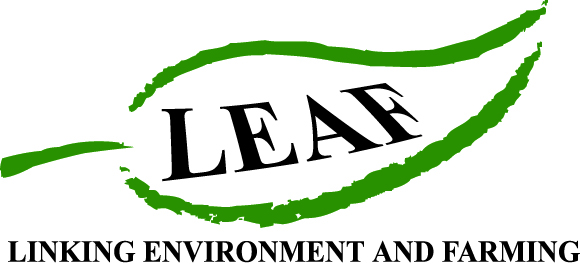 Lucy Bates from LEAF, who are managing the Horticulture work as part of our Farming Futures project have shared an update on their work.
Lucy Bates from LEAF, who are managing the Horticulture work as part of our Farming Futures project have shared an update on their work.
Crop health and protection is an integral part of every growing system, and for horticultural produce, where high standards and consistent supply are required all year round, this is a huge challenge. It is being addressed with gusto and to great effect by growers in Penwith and the surrounding area. With a nationwide reputation for supplying top quality brassicas, West Cornwall is putting into practice the ‘integrated’ approach to pest management that is the future of crop health and protection as chemistry continues to reduce in availability and efficacy.
On September 29th, LEAF visited two growers in the Penwith area. Different scales, same ‘can-do’ common-sense attitude to integrating strategies for crop health and protection. Both have eliminated the need for herbicides by adopting mechanical weeding technologies during establishment and identifying tolerance thresholds to accommodate the presence of weeds that are not competing with the crop later on. Whilst it may look a little less tidy, it certainly helps to cut costs without affecting yields and reduces reliance on chemistry which, as we know, can’t always be depended on to stick around or keep working indefinitely.
Riviera Produce, one of Cornwall’s largest brassica growers have pioneered the drilling of cover crops at every possible stage in the rotation on all land they work with, whatever the tenure. By improving structure and organic matter levels in the soil they are finding a profitable increase in resilience to both drought and flood in the brassica crops which follow, with additional vigour leading to reduced pesticide requirements. By adding biodiversity above and below ground, across the rotation and within the field, ecosystem services such as nutrient cycling and pollination have really taken off. An increase in the quality and yield of open pollinated crops, such as courgettes, has been linked to the choice of species such as phaecelia in the seed mixes, and the need for fertiliser inputs reduced by the nitrogen captured by legumes.
Variety choice continues to be an important decision for both growers. At a nearby family holding, also part of the Penwith Landscape Partnership LEAF Farming Futures Penwith horticulture project, field sown collard greens for sale to ‘crispy seaweed’ processors form an important part of the dairy focussed rotation. Drilling cheaper seed varieties in headland areas more challenged by vertebrate pests as well as slugs, means that losses can be afforded, and damaged plants grazed off by cattle after cropping. For Riviera, careful selection of cauliflower varieties for disease resistance as well as successional picking is a key part of the planning process.
The outcome of the visit was a short film of Riviera’s operations that formed a key contribution to LEAF’s IPM in Field Veg Field Day in mid-October. This included additional features from:
- Dawn Teverson of the AHDB explaining more about the national monitoring programmes run to guide risk-based decision making by growers
- LEAF Demonstration Farmer Tim Pratt, speaking from the Eastern edge of Suffolk, about how bringing pigs into his potato rotation has practically eliminated potato cyst nematode issues
We look forward to further knowledge generation and exchange activity in the area. Of course this will become easier as and when travel and gathering restrictions ease up, but in the meantime, do check out the resources that LEAF have been working on over the summer. You will certainly see some familiar faces!




